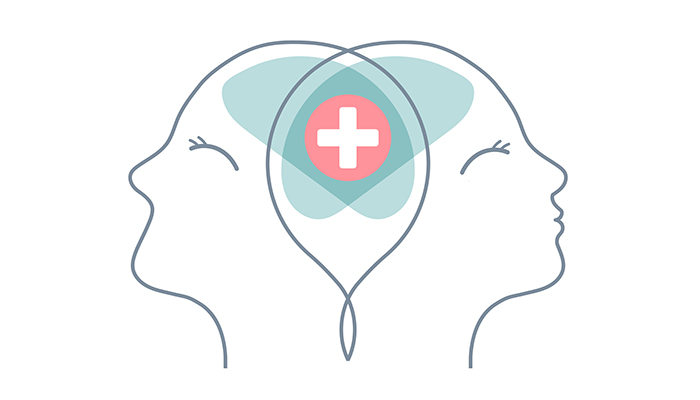Learn more at AgingWellMetroDC.com
Worried Dad might have dementia?
Consider MCI (mild cognitive impairment)
 “Senior moments” are a normal part of aging. They happen to everyone. We just don’t process things as quickly as we did in younger years.
“Senior moments” are a normal part of aging. They happen to everyone. We just don’t process things as quickly as we did in younger years.
Some people develop significant memory and thinking problems, however, and are eventually unable to live safely on their own. They have conditions that cause dementia, such as Alzheimer’s disease.
And some people function at a level in between. They can live independently and lead normal lives. But they just aren’t thinking as well as they used to. These people are said to have mild cognitive impairment (MCI).
Signs of MCI include greater than usual difficulty with
- remembering recent events or scheduled appointments
- following the thread of a conversation or movie
- making decisions or following instructions
- finding familiar locations
- making well-reasoned choices
About half the people diagnosed with MCI go on to develop Alzheimer’s disease or some other form of dementia, typically within five years. Others simply stay at this mild level of memory loss. Some even improve over time!
If you think your loved one may have MCI, schedule an appointment for a full medical exam. It may be MCI, or it could be as simple as a medication side effect or even sleep apnea or alcohol overuse. Follow up every six months to track changes.
If your relative has MCI, there is no treatment, per se. There are, however, things they can do to stack the deck in favor of good brain function:
- Increase physical activity. Exercise helps keep the heart and circulatory system strong, which is essential to brain health.
- Increase social and mental activity. People who are socially engaged or who have a hobby tend to keep their mental functions longer. Passive activities, such as watching TV, aren’t as helpful.
- Manage blood pressure. Not too high (a stroke risk). Not too low (foggy thinking).
Talking about brain health

Are you concerned a loved one may have dementia? If so, be careful how you bring it up. It’s a scary subject!
Before jumping to conclusions, gather some information. Ask family members and close friends what they have observed. Have others noticed changes?
Think of the issue as one of “brain health.” Brains change as we age. Using words such as “Alzheimer’s” or “dementia” is premature. There are more than 70 changes in brain health that can affect memory and thinking.
Consider these talking tips:
- Ask if your loved one has noticed changes. They may not have noticed or may deny it. They may have forgotten. Or they may have noticed and are also wondering (and scared!).
- Emphasize there are many different causes of fuzzy thinking. Depression. Medication side effects. Not enough sleep. Isolation and lack of social stimulation.
- Make it clear you are a team. It’s their body and brain. Your role is one of support. “I love you and I’m worried about you. Let’s explore this together.”
- Approach the issue with curiosity. It’s not about proving you are right and they have a problem. It’s about learning if their brain needs some extra support, much the way a sore knee may do better with a brace.
- Remove barriers. “Medicare pays for an annual exam that includes a review of brain health.” “I can take you to the doctor. Even go in with you if you want.”
- Get a full evaluation. Ask the doctor for a referral to a specialist who can do a complete assessment. Not all thinking problems are Alzheimer’s. It’s good to get a firm diagnosis.
- Be patient. This conversation may need to happen several times over weeks or months.
What's in an Alzheimer's test?
There is no specific test for Alzheimer’s disease. To achieve a diagnosis, doctors typically order a variety of tests. Most of the tests are to rule out the many, many conditions besides Alzheimer’s that can cause similar symptoms. Some of these have cures. Some do not.
A primary physician is likely to order three tests:
- A medical exam with lab work. The doctor will review your loved one’s medications and take a thorough family history. Blood and urine tests will check for problems with the thyroid, liver, and kidneys. Your relative also will be asked to outline what symptoms began and when, and to answer questions about alcohol and drug use and other lifestyle habits. (You may be asked to attend this appointment.)
- A neuropsychological evaluation. This is a series of tests involving word questions, drawing, and puzzles. The tests assess the functioning of different parts of the brain: Memory? The ability to plan? Language? Math? Judgment? Additional survey questions help rule out depression, which also clouds thinking.
- Brain imaging. A CT and/or MRI can detect signs of a tumor, stroke, or head injury. A PET scan highlights active versus inactive parts of the brain.
Once the results are in, your family member can meet with the primary physician to review the findings. Again, the doctor is likely to want you to be present. (Your relative may need help following the discussion. Also analyzing the pros and cons of treatment options.)
There is no cure for Alzheimer’s itself. But your loved one may have a curable dementia. The sooner you have a diagnosis, the sooner you can act. With treatment if it’s one of the curable dementias. Or medication to prolong clear thinking despite the lack of a cure. An early diagnosis also gives you time to make plans for the future.
Contact us at 301-593-5285
